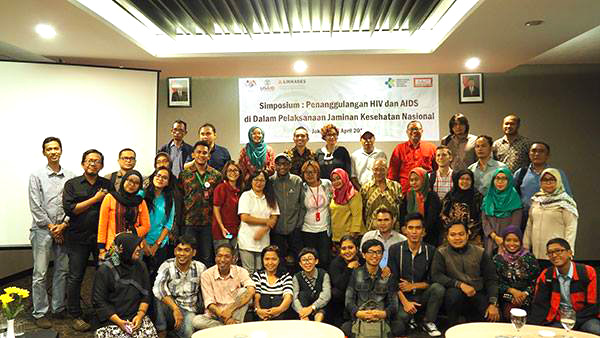For the last six years the Indonesian AIDS Coalition (IAC) has been promoting transparency, accountability, and civil participation in the fight against HIV and AIDS in Indonesia. An issue of concern and ongoing advocacy for the IAC is the financing of the Indonesian HIV response.
On these grounds, on Monday, April 17, 2016, the IAC organized a symposium titled “HIV-AIDS Response in the Era of the Implementation of the National Health Insurance Program” for government stakeholders, donors and community organizations at the premises of Hotel Harper in East Jakarta.
The symposium was organized along various thematic blocks and featured several speakers from the IAC, the Ministry of Health (MoH), the World Bank and Civil Society Organizations. Aditya Wardhana, Executive Director of the IAC, opened the symposium with a short speech. He explained that according to the national AIDS spending assessment currently about 57% of the HIV response is financed domestically, and 43% by foreign donors.
The latter will decrease significantly in the near future, as Indonesia has been classified a middle income country by the World Bank, and must thus transition from donor funding to domestic reliance for its HIV response. Domestic funds heavily rely on the state budget (APBN), roughly 80%, with an additional 15% covered by district budgets (APBD). Only 5% of domestic funds are currently covered by the National Health Insurance (JKN) program. Hence, the IAC is proposing to create a road map on how more elements of the HIV program, and associated costs, can be integrated into the National Health Insurance scheme.
Irwandy Widjajaj, Community Mobilization Officer at the IAC, then talked about the ongoing challenges faced by PLWHA and key affected populations when trying to access the National Health Insurance. He also presented a booklet of practical guidelines on how to access the National Health Insurance for PLWHA and key populations, developed by the IAC.
Subsequently, Dr. Wiendra Waworuntu, Director of Communicable Diseases at the MoH of Indonesia, spoke about the challenges of financing the HIV program in the future, highlighting that costs will further increase, while government funds allocated to the HIV program will decrease. Thus, only by integrating the HIV program into the National Health Insurance system, can the long-term sustainability of the HIV program be guaranteed, she emphasized.
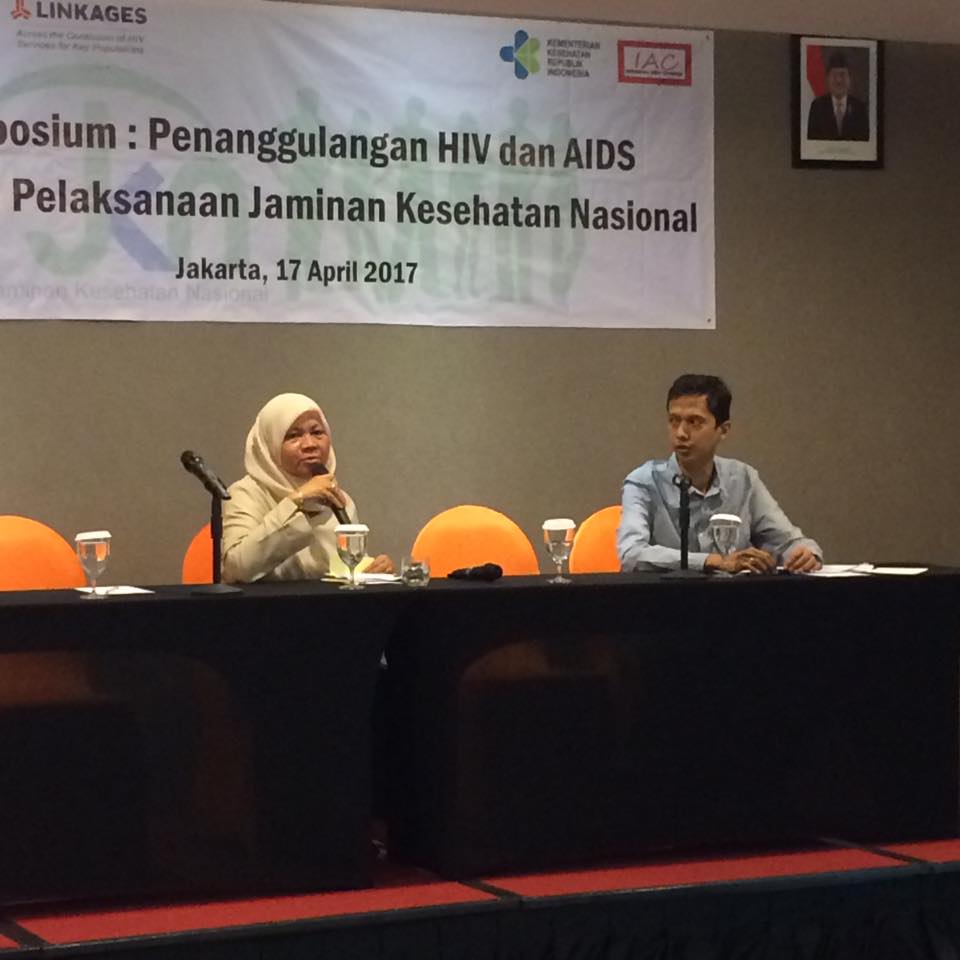
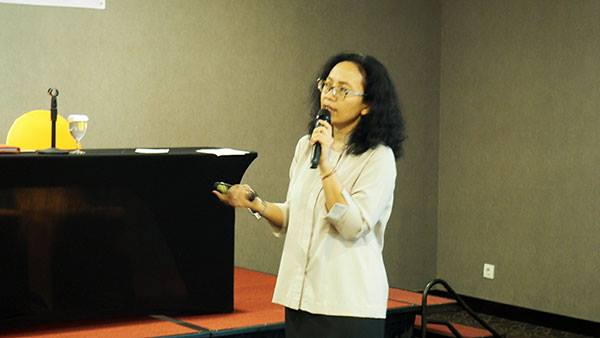
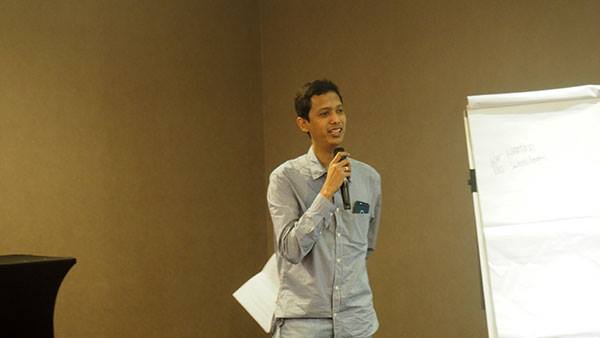
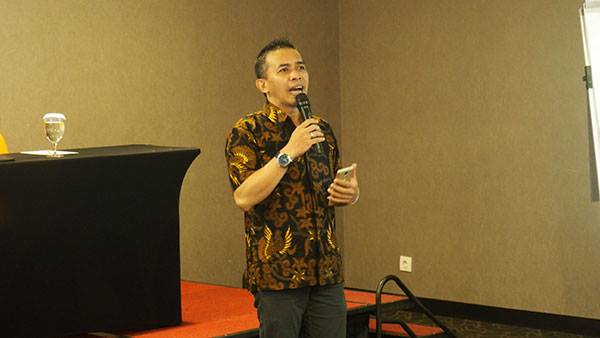
Further presentations were from Dr. Ismiwanto Cahyono from the Center of Health Financing and Insurance at the MoH, who talked about National Health Insurance Program Policies supporting the HIV and AIDS Program.
Dr. Endang Budi Hastuti, Head of the Subdit AIDS, who presented a new technical handbook by MoH on the Financing of the National Health Insurance for HIV and AIDS and STI Services at the Health Services Level.
Pandu Harimurti from the World Bank, who presented results from an analysis conducted in collaboration with the University of Indonesia, on integrating program medication into the National Health Insurance.
The last session consisted of short presentations by three different community organizations (Yayasan Inset Lombok, Warga Peduli AIDS Kota Bandung, and YPKDS Makassar), who have been assisting PLWHA and key populations to access the National Health Insurance.
With this symposium a first step into the right direction has been taken, involving most of the key stakeholders needed to develop and support a road map on the future financing of the HIV program integrated into the National Health Insurance scheme.
According to Aditya Wardhana, another crucial aspect related to the future financing of the HIV response and its long-term sustainability will also be a rationalization of medication prices. The Indonesian government is currently purchasing antiretroviral drugs on a price level three and a half times higher than the global market price.
